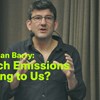frameworks
Explaining health disparities between heterosexual and LGB adolescents by integrating the minority stress and psychological mediation frameworks: Findings from the TRAILS study
Journal of Youth and Adolescence, 49(9), 1767–1782. https://link.springer.com/article/10.1007%2Fs10964-020-01206-0 Abstract Lesbian, gay, and bisexual (LGB) adolescents experience elevated levels of inteN
Usability of climate information: Toward a new scientific framework
WIREs Climate Change Abstract Climate science is expected to provide usable information to policy-makers, to support the resolution of climate change. The complex, multiply connected nature of climate c
Implementing the Water Framework Directive and Tackling Diffuse Pollution from Agriculture: Lessons from England and Scotland
in: Water 12: 244 AbstractTackling diffuse pollution from agriculture is a key challenge for governments seeking to implement the European Union’s Water Framework Directive (WFD). In the research liter
AI4People or People4AI? On human adaptation to AI at work
Ai & Society. Curmudgeon paper Abstract There is a disturbing discrepancy between the AI ethics frameworks that highlight the technology’s ability to promote the social good and the relationship bet

Felicia Fahlin
I work as a research assistant in the collaborative, art-based projectGhost Platform: Generating the "Complex Image" of Data, Labour, and Logistics,a projectwhich aims to illuminate the hidden human r
Democratic Legitimacy, Institutions for Future Generations and the Problem of Constitutional Power
Chapter in Hélène Ruiz Valérie Rosoux Alessandra Donati (red.), Representing the Absent, Baden-Baden: Nomos Verlag. Find the full book here > Abstract Recognising widely held concerns regarding ‘presentchapter challenges the contention that democratic legitimacy inexorably requires the inclusion of futuregenerations in democratic decisions. According to two requirements of democratic legitimacy – inclusionand constitutional empowerment – people should be empowered to participate in decisions about policyand law, and to determine the rules structuring the political framework. Drawing a distinction betweenthese requirements, this chapter contends that though it may be feasible to ‘include’ future generations forproxy representation, future generations cannot enjoy ‘constitutional power’.
Christian Barry: Which emissions belong to us?
Place:Holländargatan 13, Stockholm, or online.REGISTERAbstractTo address climate change we need to reduce net emissions globally. Most international processes and frameworks have involved seeking to g

Which emissions belong to us?
To address climate change we need to reduce net emissions globally. Most international processes and frameworks have involved seeking to get countries to make cuts to their emissions. Net zero has rec

The predictive capacity of the social sciences
This is an initiative to develop principles and methods for a more future-oriented social science, by starting up a discussion among researchers in social sciences, as well in Sweden as abroad.
Bias and Wisdom of Crowds
Philosophical Psychology Abstract Implicit biases have been studied by social psychologists for almost three decades, mainly as an individual phenomenon. Recent proposals, however, reframe implicit bias








